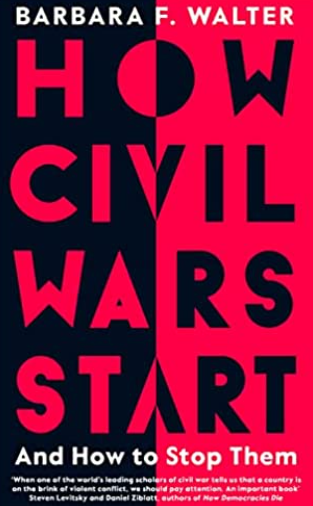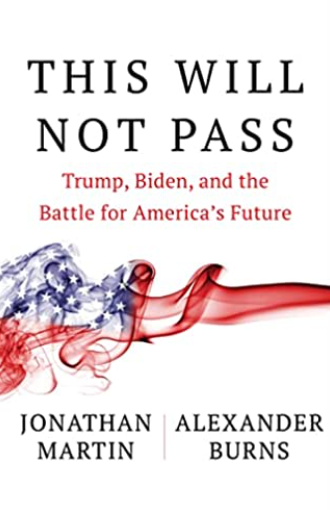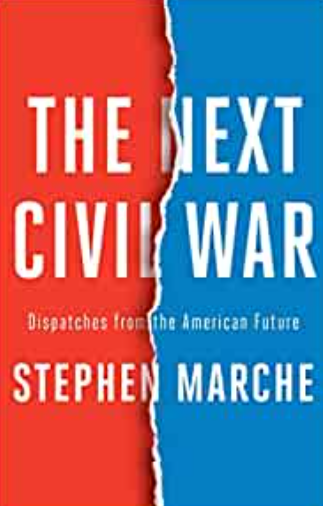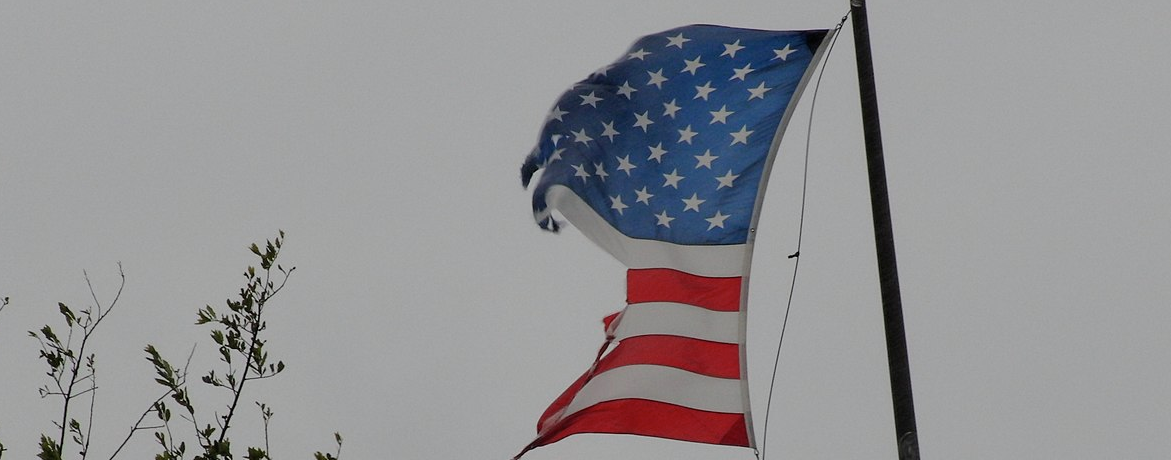By John Pickard
A few weeks ago (May 31), the Financial Times reviewed three new books published in the USA, all on a similar theme: Is America heading for civil war? Judging by the recent decisions of the Supreme Court, the USA is indeed heading for social upheaval and convulsions on a scale not seen since the mid-nineteenth century.
Conspiracy theories abound in the USA and the FT reviewer (US National Editor, Edward Luce) commented on an exercise by 1,200 troops of the US military in Texas in 2015, which, on the instructions of the state Governor, was closely monitored by the (armed) Texas National Guard. In that episode, the reviewer pointed out, “we see the germs of an American break-up.”
Although claims of the break-up of the US civil society sound alarmist, to say the least, Luce argues that the latest batch of books on the ‘coming civil war’ is “alarmingly persuasive”. The warning lights, he suggests, “are flashing redder than at any point since 1861” These reviews were weeks before the Supreme Court had upended a century-long New York state law forbidding the carrying of concealed weapons and the even more stunning decision to effectively ban abortion in half of the USA.
Now, and for the first time since the pre-civil war years, separate states are actively legislating against one another, ‘blue’ Democrat states in defence of women’s rights and gun controls and to shelter federal citizens from ‘red’ Republican states who happen to be in their jurisdiction at the time. Tens of thousands of lawyers and legislators are in open warfare across state boundaries and while it is only warfare with words at this stage, it could turn into something different in the future.
The first book in the FT multiple review was How Civil Wars Start by Barbara Walter of the University of California. Her book, Luce suggests, shows that “US democracy today is checking all the wrong boxes”.
January 6 was an attempted coup
The attack on the Capitol Building in January 2021 was without doubt an attempted coup – a desperate move by Trump and his immediate acolytes to steal the presidential election by main force. What is surprising and alarming in equal measure, is that opinion polls today show that a significant part of the US population still believe Trump’s mad rhetoric about the election being ‘stolen’. While the Congressional hearings into January 6 have provided shocking revelations to any unbiased TV viewer, the hearings have been deliberately ignored by right-wing TV stations like Fox and have had no effect on the hard core of Trump supporters.

The second book looked at by Luce is This Will Not Pass, by New York Tim reporters Jonathan Martin and Alexander Burns. In this book, Joe Biden is quoted telling a senior Democrat: “I certainly hope [my presidency] works out. If it doesn’t, I’m not sure we’re going to have a country.” As Luce suggests, “That a US president could utter something so apocalyptic without raising too many eyebrows shows how routine such dread has become”.
Today, US politics is polarised with an intensity, one could say a ferocity, like nothing in modern times. Both the Republicans and the Democrats, two parties of capitalism, are steeped in crisis, but are yet profoundly polarised. The Republicans have become a rump party of white, largely small-town and rural voters, but still able to appeal to a wide swathe of disenchanted former Democrats who have felt utterly left behind by decades of squeezed living standards, lost jobs and industries abandoned to rust and decay.
The Democrats have been trapped by the leadership into ‘holding the line’ for the capitalist system – ably supported by the trade union leadership – and on every occasion when they have held the White House those limitations have been their undoing. They have seen their support dwindle through a massive rate of abstention, although they are still supported disproportionately by women, young people and people of colour, who are utterly repelled by a Republic Party taken over by Trumpism.
According to Luce, “more than a third of Republicans and Democrats today believe violence is justified to achieve their political ends, compared with less than a tenth apiece in 2017, the year Trump took office.” That statistic alone speaks volumes about the intensity and sharpness of the polarisation developing in US society. According to Stephen Marche, a Canadian novelist, and the author of the third book reviewed by Luce, The Next Civil War, the USA “is one spectacular act of violence away from a national crisis”.
The constitutional bulwark to defend capitalism
The US constitution was designed from the off as a means of safeguarding the interests of the rich and powerful: it is a defence bulwark for capitalist interests. The so-called ‘checks and balances’ between the three ‘branches’ of government, Executive, Legislative and Judicial, are in reality obstacles to any possible movement for radical change, no matter how universally popular it may be. As we have argued in a previous article, the US constitution has baked into it a massive democratic deficit designed to limit any genuinely popular movement.

Firstly, there is the second legislative chamber, the Senate, which has a built-in bias against the more populous states. There are two senators for each state, irrespective of the size of the state. Thus, for example, California, with nearly 40 million voters, has four times the population of the ten least populous states, yet has only two Senators to their twenty.
Then there is the electoral college system. US presidents aren’t elected by the popular vote (like in France, for example), but from electoral college members elected state-by-state. This can completely undermine an actual majority – such as, for example, when Trump was ‘elected’ in 2016 with three million fewer votes than Hillary Clinton.
In recent years, Republic majority states have engaged in massive voter suppression, to minimise the votes of people of colour and working class votes, through ID enforcement and by limiting the number of polling stations in some areas. Over five million US citizens, about half of whom have served sentences for felonies, are disenfranchised because of past criminal convictions.
Trumps Supreme Court nominees aimed to overthrow abortion rights
Last but not least, we have seen in the actions of the Supreme Court in the last two weeks, openly partisan political decisions designed to limit the rights of women in particular. Donald Trump explicitly aimed to overturn abortion rights enshrined in the Wade vs Roe case of fifty years, ago and that is precisely what he has achieved by appointing right-wing ideologues to the Supreme Court.
In a period of relative social peace, when the capitalist economy is more or less booming year on year and living standards are generally rising, the democratic deficit and the inbuilt biases of the system are overlooked and assume less importance. But the greater the economic and social crisis facing US capitalism, the more these fault lines open up to become yawning chasms and the more they threaten even greater social earthquakes.
Today the USA stands on the threshold of momentous events. Women workers will not stand idly by as their rights are whittled away by the US Taliban. Young workers will not meekly accept the abolition of their civil liberties in regard to social rights. Workers of colour have already shown through the massive Black Lives Matter movement that they will not be cowed into accepting second-class citizenship any longer. Many workers, particularly young workers, are flooding into trade unions in the newest industries and services and demanding real improvements in their daily lives at work.

On the other hand, as Edward Luce points, out, “the number of right wing militias in the US has exploded in recent years” and many of white supremacists have “penetrated US law enforcement agencies”. The battle lines are being drawn. But Luce asks, “How would a 21st century US civil war actually happen?” and his answer? “Nothing like the first time”.
Downward spiral of violence and anarchy
The first of the three books, How Civil Wars Start, paints a dystopian picture of local militias, secret training camps, spasmodic urban conflicts, clashes with police, National Guard and military, city-wide lockdowns and a downward spiral of violence and anarchy. Within a complex and contradictory picture there may emerge new armed groups like the Black Panthers, alongside radical groups and white nationalist paramilitaries.
What Luce does not deal with is the inevitable class element in this intensified social upheaval. What impends in US society is a complex and confusing series of conflicts and social clashes, a maelstrom of rallies, demonstrations, occupations, social skirmishes, incidents and armed engagements. But it is essentially a class war that is looming, as capitalist society disintegrates almost before our eyes.
It will be a class war that will put the battles of the 1930s in the shade. In that period, America saw huge movements of previously unorganised workers, notably car workers, literally fighting for union recognition and benefits. Many of those struggles were necessarily violent, as the bosses and police conducted vicious assaults on trade unionists and the latter were forced to defend themselves.
One unanticipated side-effect of the lax US gun laws is that there are 400 million handguns in US society and it will not be easy for strike-breakers and the state to suppress workers’ struggles with the same impunity they had in the past, because the workers too are armed. The sixty-four thousand dollar question is whether or not there will be a movement, a political party or a leadership that can provide – in time – a coherent path through the upheavals that are coming, and point towards a better society, before a point of no return is reached. See article on Roe vs Wade Supreme Court decision here.
How Civil Wars Start: And How to Stop Them by Barbara F Walter
This Will Not Pass: Trump, Biden, and the Battle for America’s Future by Jonathan Martin and Alexander Burns
The Next Civil War: Dispatches from the American Future by Stephen Marche,




Part of the Republican fixing of ‘American democracy’ , in addition to voter suppression, is the gerrymandering of electoral districts – https://www.theguardian.com/us-news/ng-interactive/2021/nov/12/gerrymander-redistricting-map-republicans-democrats-visual
Thousands of people now live in Democrat majority states with Republican legislatures.